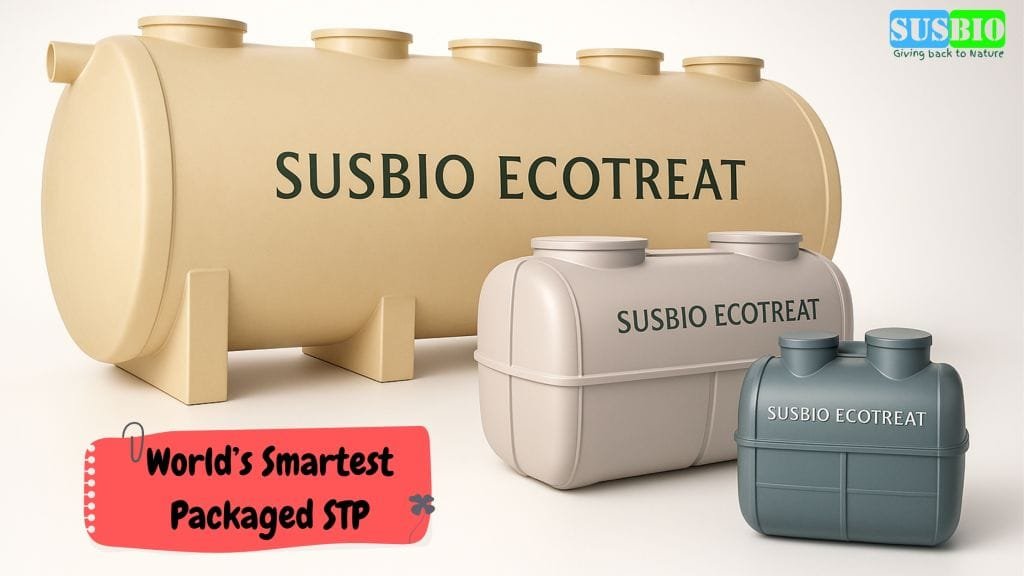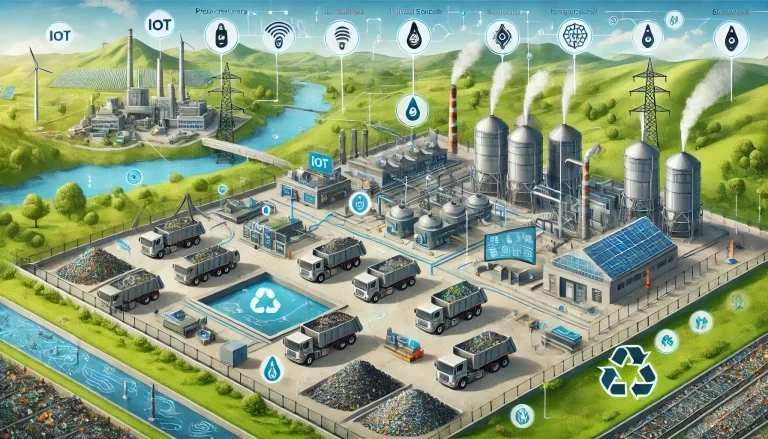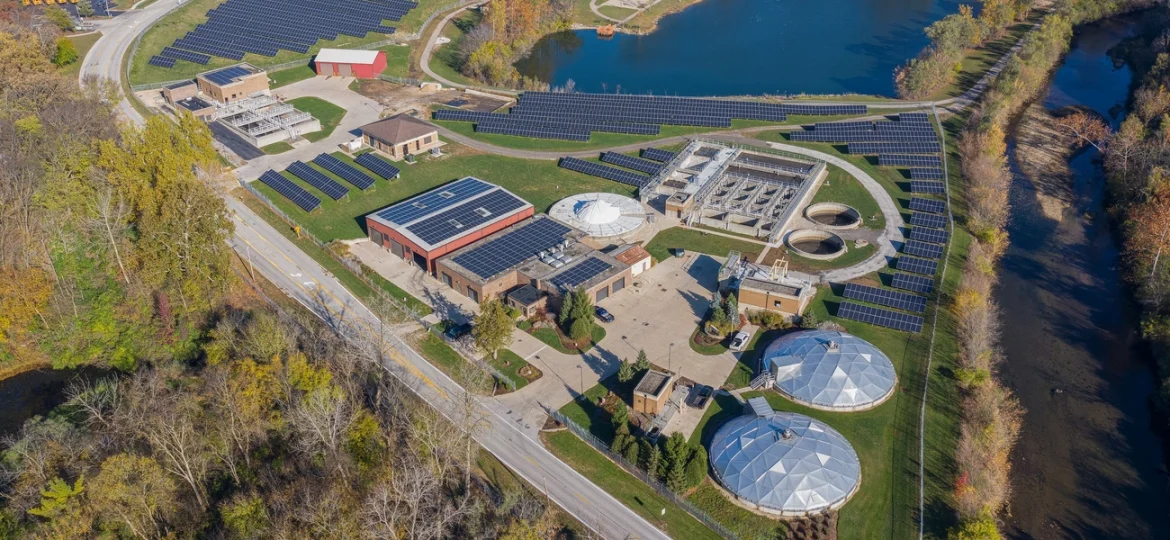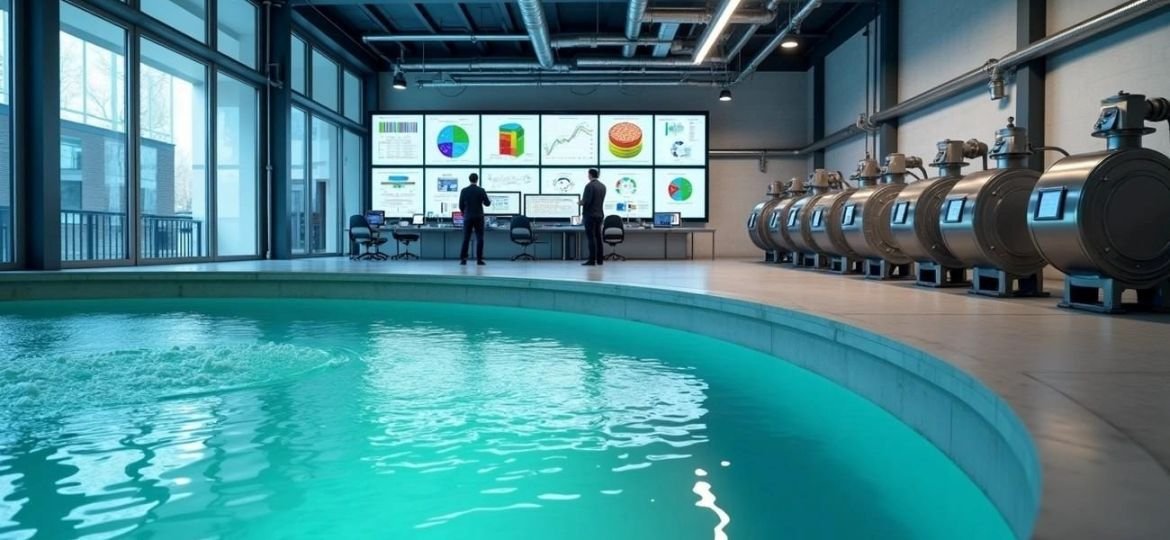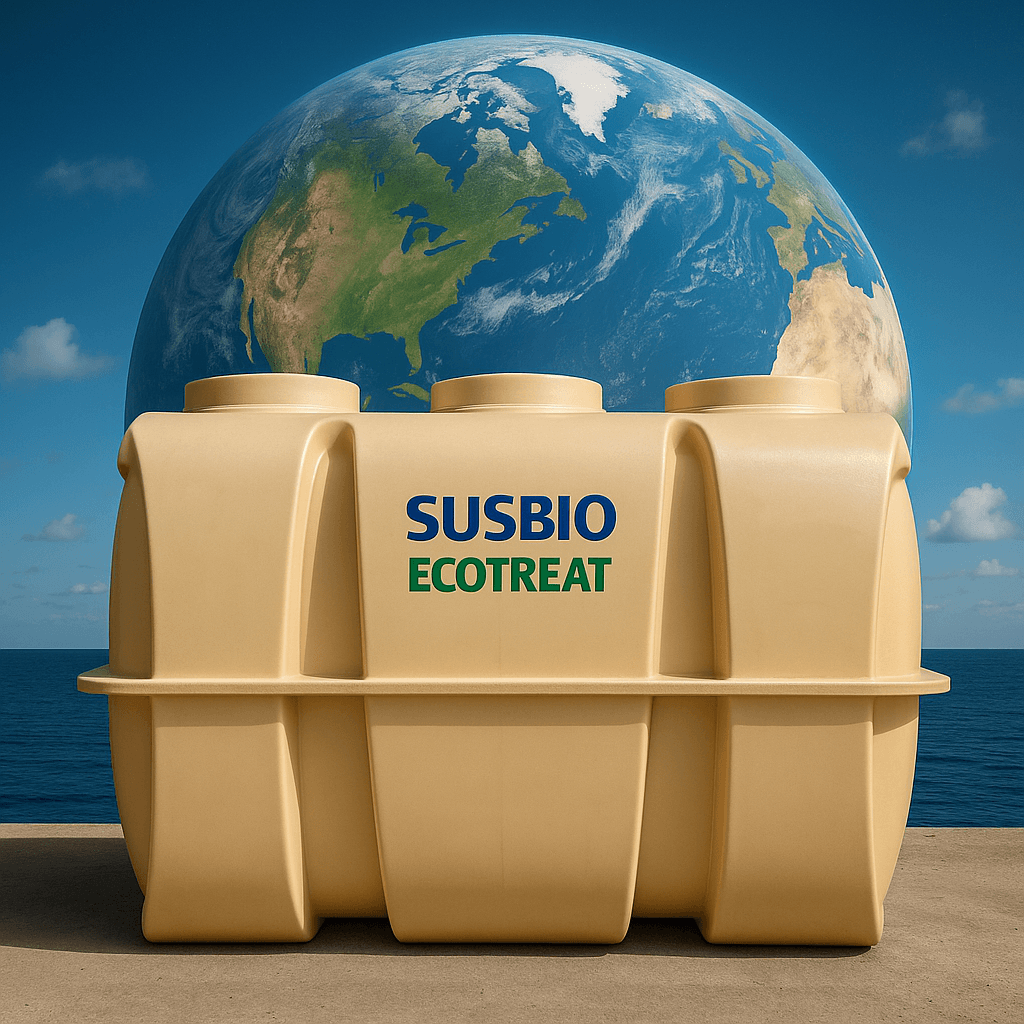Industrial operations generate significant amounts of wastewater containing harmful pollutants. Managing this wastewater effectively is critical for complying with regulations, protecting the environment, and optimizing resources. A reliable sewage treatment plant (STP) plays a vital role in addressing these needs. This blog delves into the importance of STPs for industries, their benefits, and why SUSBIO ECOTREAT is the ultimate choice for industrial wastewater management.
What is STPs (Sewage Treatment Plants)?
A Sewage Treatment Plant (STP) is a facility designed to treat wastewater by removing contaminants and making it safe for discharge into the environment or for reuse. There are various types of STPs, each designed to cater to different needs and industries. The type of STP selected depends on factors like the scale of operation, the volume of sewage, and the level of treatment required.
Types of STPs Used in Different Industries
- Industrial STPs
Industrial Sewage Treatment Plants are designed to handle the wastewater generated by industrial processes. These systems are tailored to meet the specific needs of different industries, including textiles, chemicals, and food processing, which may generate wastewater with varying degrees of contaminants.
Some common technologies used in industrial STPs include:- MBBR (Moving Bed Biofilm Reactor): Efficient for high-load wastewater treatment, used in industries where large volumes of wastewater need to be treated with limited space.
- SBR (Sequencing Batch Reactor): Ideal for industries with fluctuating sewage volumes, providing a flexible treatment process.
- Activated Sludge Systems: Widely used in industries where biological treatment is crucial to remove organic contaminants.
- Municipal STPs
Municipal STPs are used to treat wastewater from households, commercial establishments, and other non-industrial sources. These STPs are typically larger and designed to handle significant amounts of sewage from urban populations.
Technologies in municipal STPs often include:- Primary, Secondary, and Tertiary Treatment: A multi-stage process where sewage undergoes mechanical, biological, and chemical treatments.
- Trickling Filters and Oxidation Ponds: Older methods still used in many smaller or less complex municipal plants.
Technology Involved in STPs
- MBBR (Moving Bed Biofilm Reactor)
MBBR technology is commonly used in both industrial and municipal STPs. This process enhances biological treatment by allowing microorganisms to break down organic contaminants efficiently. It’s a highly space-efficient solution, ideal for areas with limited space or high sewage volumes. - SBR (Sequencing Batch Reactor)
SBR technology provides a highly flexible and cost-effective way of treating wastewater, especially for industries where wastewater flows are inconsistent. This system processes wastewater in a series of batches, allowing for effective nutrient removal and pollutant breakdown. - Activated Sludge Systems
These systems are the most commonly used method in STPs. The process relies on microorganisms to break down organic material in the wastewater. The use of activated sludge is particularly beneficial in treating high organic content in municipal and industrial wastewater.
Each type of STP and its associated technology serves a unique purpose, depending on the type of waste being treated and the environmental standards required.
Why Do Industries Need Sewage Treatment Plants (STPs)?
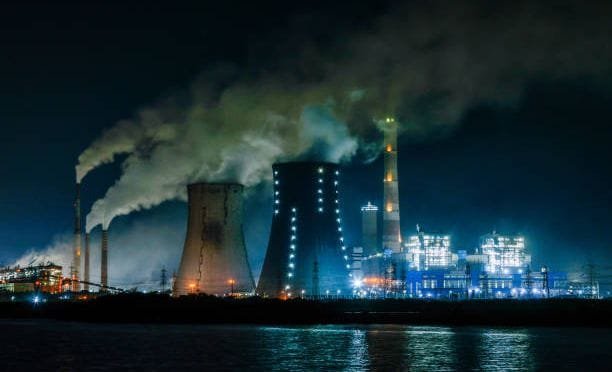
Industrial processes such as manufacturing, chemical production, food processing, and pharmaceuticals produce large volumes of wastewater. Untreated industrial wastewater can lead to severe environmental and health issues. Here’s why industries must invest in an efficient wastewater treatment plant (STP):
- Regulatory Compliance – Government authorities impose stringent wastewater treatment regulations on industries. A robust STP for industries ensures compliance with these regulations, avoiding penalties and safeguarding business operations.
- Environmental Responsibility – Industries must contribute to sustainable practices by reducing their environmental footprint. An effective sewage treatment system removes pollutants from wastewater, preventing contamination of natural water bodies.
- Water Reuse and Conservation – Treated water from an STP can be reused for non-potable applications such as cooling towers, cleaning, and irrigation, significantly reducing dependency on freshwater resources.
- Operational Efficiency – A high-performing sewage treatment plant supports smooth industrial operations by effectively managing wastewater and minimizing downtime caused by environmental issues.
- Positive Brand Image – Industries that adopt sustainable practices, including wastewater treatment, demonstrate corporate responsibility, enhancing their reputation among stakeholders and customers.
Benefits of a High-Quality Sewage Treatment Plant for Industries
Investing in a reliable industrial STP offers a range of advantages:
- Effective Pollutant Removal – An advanced STP for industries efficiently removes heavy metals, oils, chemicals, and other pollutants from wastewater, ensuring safe disposal or reuse.
- Cost Savings – By enabling water reuse, an STP reduces water procurement costs and lowers expenses associated with wastewater disposal.
- Scalability and Flexibility – Modern packaged STPs can be customized to meet the specific wastewater treatment needs of different industries, ensuring flexibility and scalability.
- Reduced Environmental Impact – Efficient wastewater treatment minimizes the release of harmful contaminants into the environment, promoting ecological balance.
- Energy-Efficient Solutions – Innovative STP designs like SUSBIO ECOTREAT ensure optimal performance with minimal energy consumption, cutting down operational costs.
Industrial Wastewater Treatment Methods
Industrial wastewater treatment ensures the safe disposal or reuse of wastewater generated by various industries. The treatment method chosen depends on the industry and the contaminants present. Here, we’ll cover key industrial wastewater treatment methods: membrane filtration, activated sludge systems, and chemical treatment, and explore how they are used in industries like textile, food processing, and pharmaceuticals.
1. Membrane Filtration for Industrial Wastewater
Membrane filtration uses semi-permeable membranes to separate contaminants from wastewater. This method is effective in removing suspended solids, bacteria, and even dissolved salts. The filtration process can include microfiltration, ultrafiltration, nanofiltration, and reverse osmosis.
- Industries Using Membrane Filtration:
- Textile: Removes dyes, chemicals, and suspended solids.
- Food Processing: Treats organic waste, oils, and fats.
- Pharmaceutical: Removes active pharmaceutical ingredients (APIs) and chemicals.
2. Activated Sludge Systems
Activated sludge systems use microorganisms to break down organic contaminants. This biological process involves aeration tanks and clarifiers where pollutants are degraded and removed.
- Industries Using Activated Sludge Systems:
- Textile: Treats organic loads from dyeing and finishing.
- Food Processing: Removes fats, oils, and organic matter.
- Pharmaceutical: Treats organic and chemical pollutants.
3. Chemical Treatment in Wastewater
Chemical treatment involves adding chemicals to neutralize or remove contaminants, such as heavy metals, oils, and chemicals. Methods include coagulation, flocculation, precipitation, and disinfection.
- Industries Using Chemical Treatment:
- Textile: Removes dyes, suspended solids, and chemicals.
- Food Processing: Removes fats, oils, and disinfects water.
- Pharmaceutical: Precipitates heavy metals and disinfects water.
Selecting the right industrial wastewater treatment method is critical for compliance and cost-effectiveness. Whether it’s membrane filtration, activated sludge systems, or chemical treatment, each method is tailored to meet the specific needs of industries like textile, food processing, and pharmaceuticals.
Why SUSBIO ECOTREAT is the Best Industrial STP
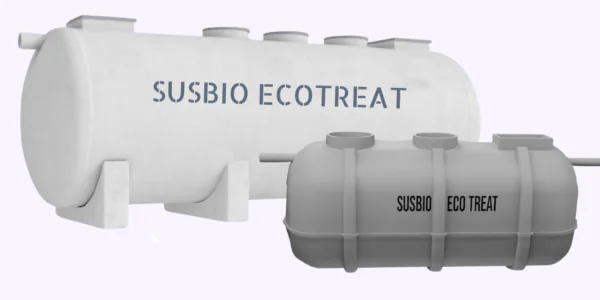
SUSBIO ECOTREAT is a state-of-the-art packaged sewage treatment plant specifically designed to meet the rigorous demands of industrial applications. Here’s why it is the preferred choice for industries:
- Advanced Prefabricated Design – Built with durable fiber-reinforced plastic, SUSBIO ECOTREAT is highly resistant to corrosion and wear, making it ideal for industrial environments. Its compact, modular design simplifies installation and operation.
- Dual Treatment Technology – The system combines biological and physical processes to deliver exceptional treatment efficiency, ensuring the removal of even the most challenging industrial pollutants.
- Energy Efficiency – Industries can save on operational costs with SUSBIO ECOTREAT, which is engineered to use minimal energy while providing superior wastewater treatment.
- Minimal Maintenance – The robust construction and innovative design reduce maintenance requirements, ensuring uninterrupted operation and cost savings over time.
- Customization for Industrial Needs – Every industry has unique wastewater challenges. SUSBIO ECOTREAT offers tailored solutions to meet specific industrial requirements, ensuring maximum efficiency.
- Environmentally Friendly – By promoting water reuse and minimizing sludge production, SUSBIO ECOTREAT helps industries align with sustainability goals.
FAQs: Sewage Treatment Plants for Industries
Q1. Why is an STP important for industries?
An STP ensures the proper treatment of industrial wastewater, enabling compliance with regulations, reducing environmental impact, and supporting sustainable operations.
Q2. What pollutants does an industrial STP treat?
Industrial STPs treat various pollutants, including heavy metals, oils, chemicals, and organic waste, making wastewater safe for disposal or reuse.
Q3. What is the best STP for industries?
SUSBIO ECOTREAT is the best packaged sewage treatment plant for industries due to its advanced technology, energy efficiency, and customized solutions.
Q4. Can treated water from an industrial STP be reused?
Yes, treated water can be reused for processes such as cooling, cleaning, and irrigation, reducing water consumption and costs.
Q5. How does SUSBIO ECOTREAT support sustainability in industries?
SUSBIO ECOTREAT promotes sustainability by reducing pollutants, enabling water reuse, and minimizing sludge production, all while consuming minimal energy.
Conclusion
Industries require efficient and reliable wastewater treatment solutions to comply with regulations, protect the environment, and optimize operational costs. SUSBIO ECOTREAT is a cutting-edge packaged sewage treatment plant that delivers unmatched performance, energy efficiency, and sustainability for industrial applications. Choosing SUSBIO ECOTREAT ensures that your industry is equipped with the best wastewater treatment technology, making it the best STP company in India for industrial solutions.
Contact SUSBIO today to learn how SUSBIO ECOTREAT can revolutionize wastewater management for your industry!


